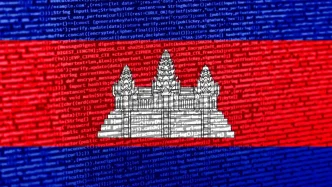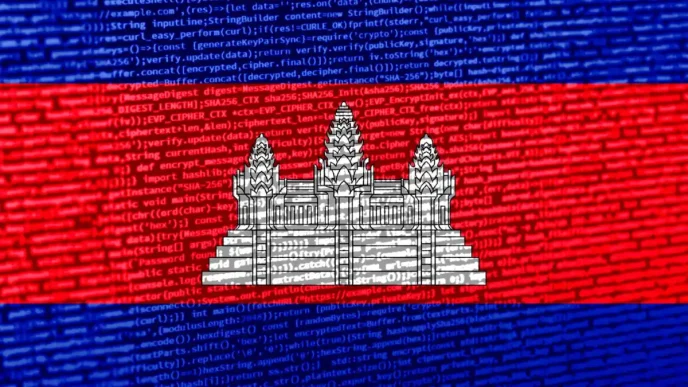In an alarming trend sweeping across social media, Malaysian authorities have uncovered a series of sophisticated deepfake videos promoting fraudulent investment schemes. These AI-generated clips, which falsely depict high-profile figures such as Prime Minister Datuk Seri Anwar Ibrahim and US President Donald Trump, are designed to deceive the public into believing that these schemes carry official endorsement. Since last year, five such videos have been identified, raising urgent concerns about the misuse of artificial intelligence (AI) in cybercrime.
The Bukit Aman Commercial Crime Investigation Department (CCID), led by director Comm Datuk Seri Ramli Mohamed Yoosuf, revealed that the videos also feature other prominent individuals, including senior PETRONAS management, Seputeh MP Teresa Kok, and Tesla CEO Elon Musk. These fabricated clips portray the figures as actively encouraging public participation in investment opportunities that promise returns as high as 100 times the initial stake—a claim that authorities have dismissed as entirely fraudulent. “Although the videos are promoted on various platforms, it is believed the same syndicate produced them to mislead victims,” Comm Ramli stated on 12 March.
A Growing Threat in the Digital Age
The rise of deepfake technology, which uses AI to manipulate video and audio content with startling realism, represents a new frontier in online scams. These videos often incorporate a veneer of credibility by misusing the likenesses of trusted public figures or reputable organisations. According to a statement from the Securities Commission Malaysia (SC), such content frequently includes a “Learn More” button or link that directs unsuspecting users to a registration page. Victims are prompted to provide personal information or download applications that could expose them to further cyber risks, including data theft or malware.
The SC has warned that these scams exploit the public’s trust in familiar faces and institutions. In collaboration with the Malaysian Communications and Multimedia Commission, the agency is taking steps to remove such content from online platforms to limit public exposure. However, the ease with which deepfake videos can be created and disseminated poses a significant challenge to regulators and law enforcement alike. “Public awareness of the dangers of deepfake videos is crucial, and users are advised to verify sources before believing such content,” the SC emphasised.
The Mechanics of Deception
The sophistication of these scams lies in their ability to convincingly replicate the voices and mannerisms of real individuals. AI algorithms can stitch together publicly available footage and audio to create seamless forgeries that are difficult to distinguish from authentic content. In the Malaysian context, the inclusion of figures like Prime Minister Anwar Ibrahim—a symbol of national authority—lends an air of legitimacy to the fraudulent schemes. Similarly, the use of international figures like Donald Trump and Elon Musk targets a broader audience, capitalising on their global recognition.
Beyond the immediate financial losses incurred by victims, the proliferation of deepfake technology raises broader concerns about trust in digital media. If left unchecked, such tools could undermine public confidence in online information, with potential ramifications for everything from political discourse to corporate communications. In a region like South East Asia, where social media penetration is among the highest in the world, the impact of these scams could be particularly acute.
### Legal and Ethical Implications
The misuse of deepfake technology also brings into focus complex legal and ethical questions. Under Malaysian law, the dissemination of false information with intent to deceive is punishable under various statutes, including the Communications and Multimedia Act 1998. However, the transnational nature of cybercrime complicates enforcement efforts, as perpetrators often operate from jurisdictions beyond Malaysia’s reach. The involvement of a suspected syndicate further underscores the organised and professional nature of these operations, which may require international cooperation to dismantle.
Ethically, the manipulation of individuals’ likenesses without consent constitutes a profound violation of personal rights. Public figures, whose images are often in the public domain, are particularly vulnerable to such exploitation. While the immediate goal of these scams is financial gain, the potential for deepfakes to be weaponised for political or social disruption cannot be ignored. If malicious actors were to deploy similar technology to spread disinformation during elections or periods of civil unrest, the consequences could be far-reaching.
A Call for Vigilance and Regulation
Addressing the deepfake threat requires a multi-pronged approach that combines public education, technological innovation, and robust regulatory frameworks. For individuals, the first line of defence is scepticism: verifying the authenticity of online content before taking action is essential. Simple steps, such as cross-checking claims with reputable news sources or official government websites, can prevent many from falling prey to these scams.
At the institutional level, tech companies bear a significant responsibility to curb the spread of deepfake content on their platforms. While some, like Meta, have introduced facial recognition tools to detect scam advertisements featuring celebrities, such measures remain in their infancy. Greater investment in AI-driven detection systems, alongside stricter content moderation policies, could help stem the tide of fraudulent videos. Governments, meanwhile, must work to update existing cybercrime laws to account for emerging technologies, ensuring that perpetrators face meaningful consequences.
In Malaysia, the SC’s proactive stance on removing deepfake content is a step in the right direction. Yet, as Comm Ramli noted, the persistence of these videos across multiple platforms suggests that more comprehensive solutions are needed. Regional cooperation, perhaps through frameworks like ASEAN, could facilitate the sharing of intelligence and best practices to combat cybercrime on a broader scale.
The Road Ahead
The emergence of deepfake-driven investment scams in Malaysia is a stark reminder of the double-edged nature of technological progress. While AI holds immense potential to transform industries and improve lives, its misuse in the hands of criminals poses a growing threat to societal trust and security. As the technology becomes more accessible, the likelihood of such scams proliferating increases, making it imperative for authorities, businesses, and individuals to remain vigilant.
For now, the Malaysian public is urged to exercise caution when encountering online investment opportunities, particularly those promoted through unsolicited videos or links. The promise of extraordinary returns, as depicted in these deepfake clips, is almost certainly too good to be true. By fostering a culture of digital literacy and critical thinking, Malaysia can build resilience against this insidious form of cybercrime.
The battle against deepfakes is unlikely to be won overnight, but with coordinated efforts across sectors, the country can mitigate the damage and safeguard its digital future. As the SC aptly put it, awareness is the key—because in an era where seeing is no longer believing, critical scrutiny is the only way forward.














